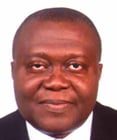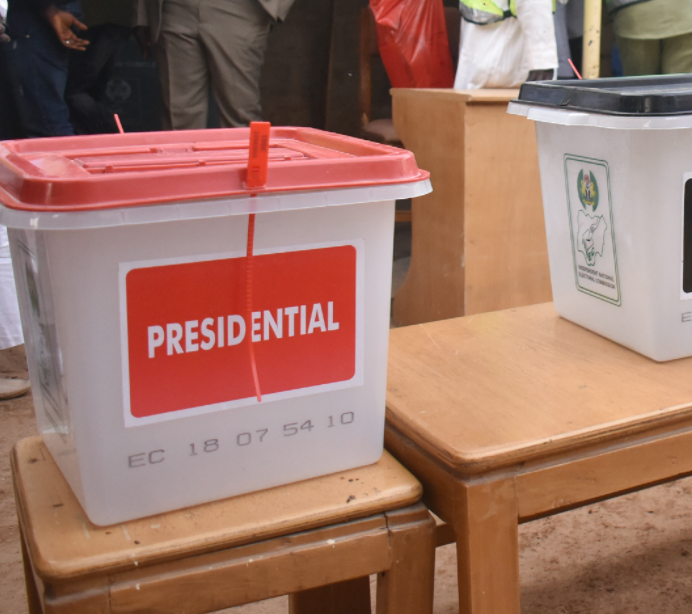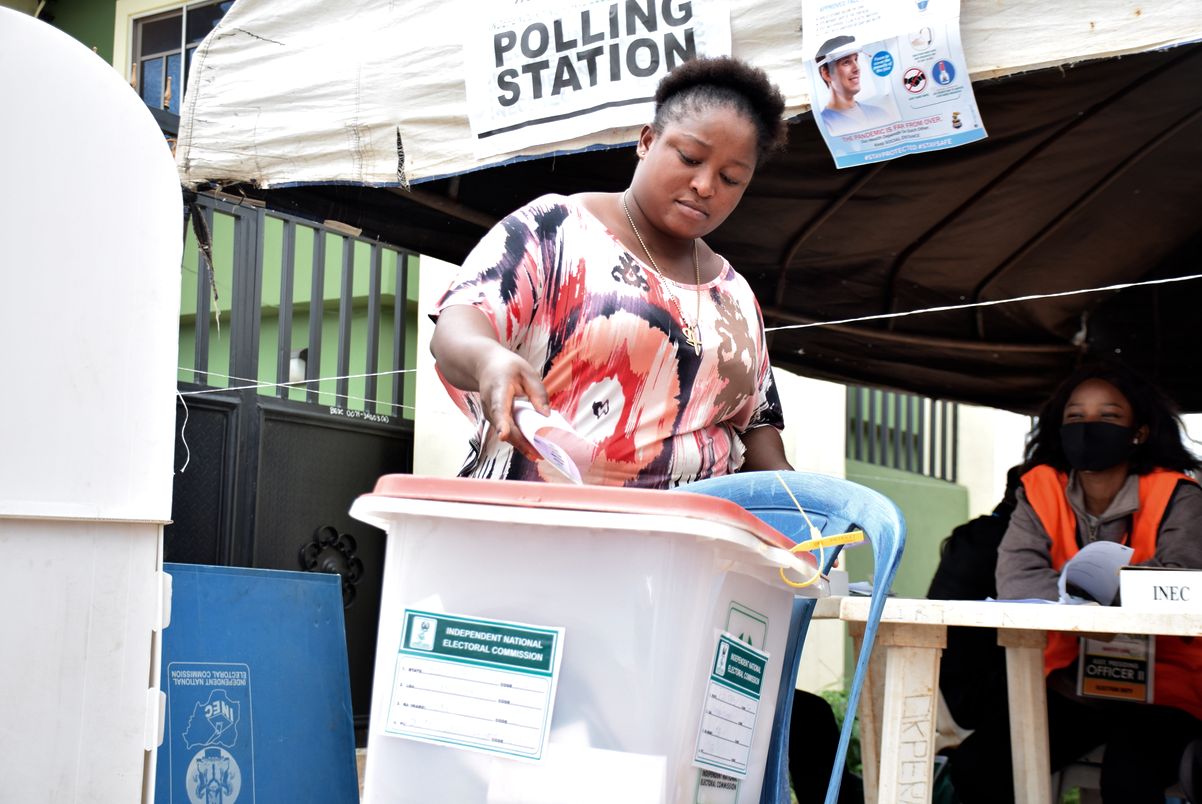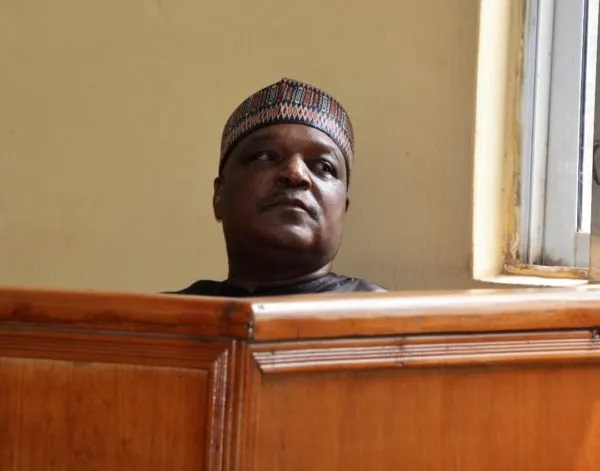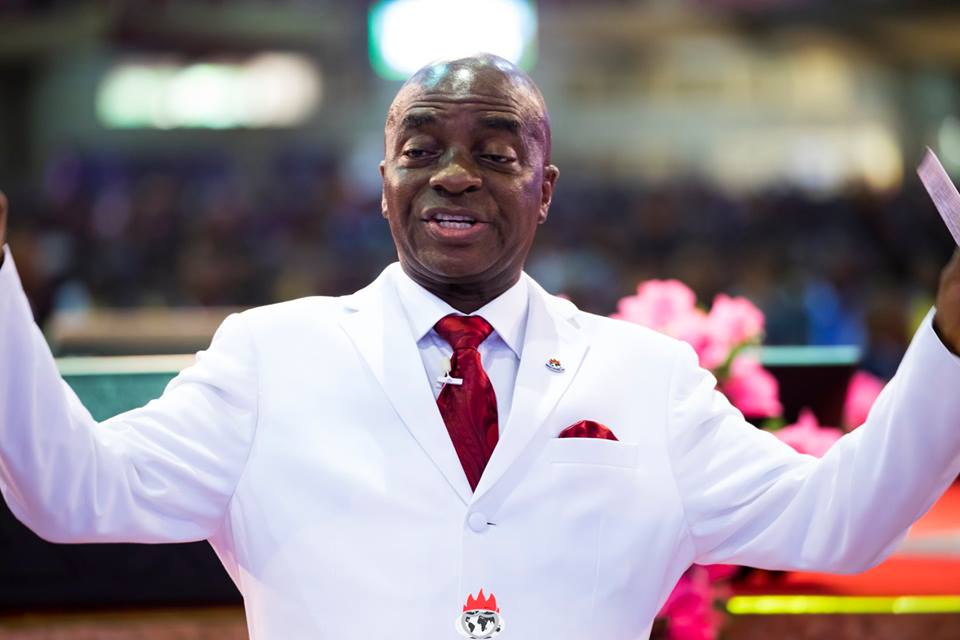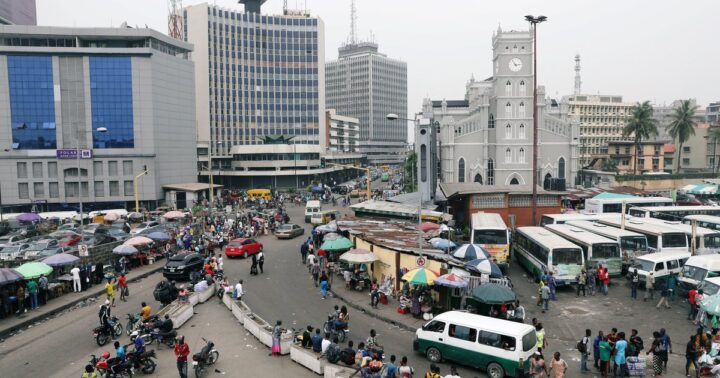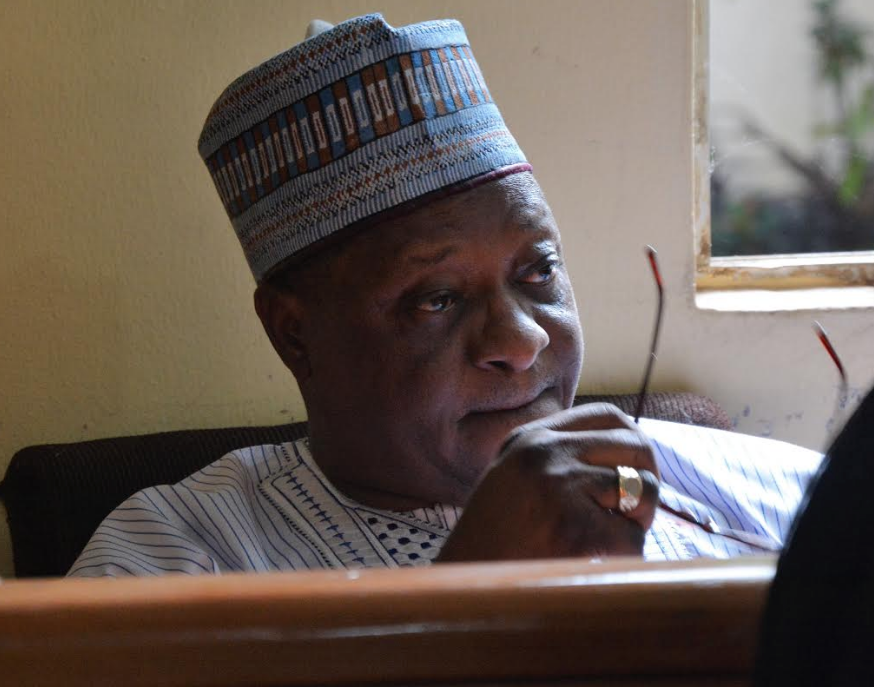The list of presidential aspirants is growing daily with more declarations being announced at the drop of a hat, especially in the dominant parties – the All Progressives Congress (APC) and the People’s Democratic Party (PDP) – that are essentially two sides of the same coin. Even though our politicians keep crossing carpets and trading places between both parties without any sense of shame or history, they must understand that we need drastic changes urgently.
Politicians in Nigeria are generally fair-weather friends, always in search of where their bread would be buttered; they do not have principles and the political parties find it difficult to stay on track with purposeful ideologies.
In APC and PDP alone, we have over 20 Nigerians seeking the highest office in the land – they all want to be president. As I have noted in the past, it is well within everyone’s right to contest; let them come out and test their popularity – as long as the process is free and fair. But one thing is clear: Nigerians need a strong and intelligent leader because we are tired of the hanky panky of the political elite and their collaborators.
In this article, I have identified, as much as I can, the front runners and likely candidates as we count down to the party primaries. It is expected that the parties will focus on winning the presidential election by putting their best candidates forward, taking into account their strengths and weaknesses.
Advertisement
“Democracy is not working in Nigeria and we cannot continue like this,” declared a Nigerian friend of mine living in London, obviously frustrated with the negative stories coming from home. “God has given us everything to prosper but we have many enemies of progress in Nigeria,” my friend added.
These “enemies” know themselves but they are living on borrowed time. The biggest concern right now is that Nigeria cannot afford a humanitarian crisis, not with what we are witnessing in Ukraine after Russia declared war on the country. I’m not an alarmist but the threat from non-state actors is an ever-present danger to the general elections and the unity of this country. Even more dangerous is the threat to the daily survival of most Nigerians.
What politicians do is play mind games with us in their flowing robes and position themselves strongly for quick wins. Politics, for most of them, is a full-time job but they lack any visionary zeal and sense of purpose to take Nigeria to the “Promised Land” which explains our current situation: motion without movement.
Advertisement
Who, among the presidential aspirants, has what it takes to initiate a bold vision for Nigeria and act on it? You will agree with me that we can only project from the list of potential candidates available in APC and PDP, without prejudice to the other registered political parties. We are unlucky to be saddled with recycled politicians with deep pockets, but you can be sure our current “political culture” will definitely favour some of the aspirants.
Let no one fool you, if you do not have money, you cannot win any election – not even a council election. That is the dilemma but where do they find the money for electioneering? Sources of campaign funds running into billions of Naira are never declared.
From what Prof Mahmoud Yakubu, Chairman of the Independent National Electoral Commission (INEC), said recently, he is worried about the security situation in the country. He averred that the extenuating circumstances constitute a threat to the general elections in 2023. This is why I am surprised that the Council of State approved we should hold the national census in April next year when the current administration should be winding down.
It is the security of our country – not the census – that should be our priority right now. The incoming administration can conduct the census. There’s no need to stampede Nigerians into a hurriedly packaged national headcount; it can wait. Anyway, let us assume the elections will hold.
Advertisement
Previously, APC had zoned the party’s presidential ticket to the South. It explained why Senator Abdullahi Adamu emerged as Chairman of the party through a consensus arrangement (at the behest of President Muhammadu Buhari) at the national convention of the party which finally held on March 26 in spite of dissenting voices.
The three top contenders in APC, from my dip stick survey, are Asiwaju Bola Ahmed Tinubu, a national leader of the party; vice president Yemi Osinbajo and minister of transportation, Rotimi Amaechi, in that order. However, it was Asiwaju Tinubu who first declared his presidential ambition; he has a first-mover advantage.
After weeks of speculation, Vice President Yemi Osinbajo finally declared his intention to contest for president. Let us just say his announcement did not come as a surprise; it was only a question of time but his declaration could have been better choreographed, according to Victor Oladokun, a communications specialist and brand management expert based in Virginia, USA. The overall presentation struck me as what was put together in a hurry. Never mind, he is in the race and I think that is what is important.
As vice president since 2015, Osinbajo believes he is just one step away from occupying the exalted and powerful office of president and I must say it is well within his right to contest. But the unfolding scenario will be an interesting case study for political science researchers. Which political structure will Osinbajo rely on? How did President Buhari receive the news? At what point did he drop the ball with his former boss, Tinubu? What exactly was his motivation to contest?
Advertisement
Osinbajo, a brilliant legal mind, knows that declaring his ambition was “the ultimate test of his loyalty to Tinubu.” I took the liberty to paraphrase these words by Babatunde Fashola, minister of works and housing, who is also eminently qualified to take a shot at the presidency. Well, the VP knows that the die is cast and there’s no turning back.
His relationship with Tinubu since his days as the chief law officer of Lagos state when the Jagaban Borgu was the governor has been seriously tested and it will be a straight fight between Tinubu and Osinbajo who are clearly the front runners of the party. Insiders told me that their relationship is damaged and it may never be the same again.
Advertisement
Although Osinbajo’s high profile position gives him a helicopter view of what goes on inside government circles, Tinubu’s formidable political machine built over the years will be an advantage. By the way, Tinubu – a democracy activist and technocrat — hit the ground running in January and he has been travelling around the country, engaging critical stakeholders. Anyway, politicians do that all the time, testing the waters and weighing their options in what usually turns out to be a cat and mouse race.
My friends and associates are divided on the matter between Tinubu and the VP. In fact, some of them want any party but APC at the centre next year because they are “unhappy” with the Buhari administration.
Advertisement
However, a majority believe Tinubu should get the ticket because, according to them, he will be a “strong” leader. Osinbajo has demonstrated his credentials as a public intellectual with the power of oratory and elocution but he should worry about the trending stories on his appointments that allegedly favour RCCG (his church) members.
Rotimi Amaechi, from all indications, appears to be favoured by the northern establishment to take over from President Buhari, but it remains what it is: mere speculation. Becoming president of Nigeria goes beyond wishful thinking. What is Amaechi’s game plan? Who are the delegates in his corner? What will happen in Rivers state where Senator Magnus Abe and Governor Nyesom Wike – two political adversaries – are waiting for him? Amaechi knows he has to deliver his state in the presidential election – that is if he is able to get the party’s ticket.
Advertisement
If we cast our minds back, we would recall that Tinubu and Amaechi were the main “facilitators” of the emergence of Buhari as the party’s flag bearer in 2015. How would the seven-year-old gesture count in their favour? Who will be the ultimate beneficiary of the 2015 pact? What is Amaechi’s political capital? Is there something we do not know about his turbaning ceremony in Daura? Well, let us wait and see.
The other APC contenders are Yahaya Bello, governor of Kogi state, Dave Umahi, governor of Ebonyi state (he defected from PDP), Senator Orji Kalu, Senator Rochas Okorocha and Pastor Tunde Bakare. With all due respect, these are players in the second division league of 2023 presidential politics. Not much has been heard from Godwin Emefiele, governor of the Central Bank of Nigeria (CBN); Kayode Fayemi, governor of Ekiti state and Senator Ibikunle Amosun but it appears they are also keen to join the race and become relevant in the scheme of things.
The delegate system will be used at the upcoming primaries – as opposed to the consensus method — to determine the flag bearer of the party but trust me when I say it will be a high stake game. Lobbying and horse-trading are on and they are part of the game and our democratic culture. This is why there are so many presidential aspirants stepping out from behind their curtains to be recognised and take advantage of the “free publicity” arising thereof. Name recognition (brand appeal) is a deliberate survival strategy in politics.
In the case of PDP, zoning where the party’s flag bearer would come from was a major issue but the matter has since been settled. Contestants can come from any part of the country and still be eligible to take part in the presidential primaries – but that is after obtaining the expression of interest form costing N40 million.
PDP, from all indications, wants to unseat APC but how ready is the party? My crystal ball tells me that APC will win the presidential election in spite of the “unhappiness” expressed by some people except, of course, there are major upsets from different polling centres nationwide. PDP also parades a long list of presidential aspirants and it should not be surprising; it is all about positioning for relevance and survival. Politics is a game and the rules were drawn up by the politicians themselves.
The contestants include Alhaji Atiku Abubakar, former vice president; Senator Bukola Saraki, former senate president; Senator Ayim Pius Ayim; former secretary to the federal government; Peter Obi, former governor of Anambra state; Mazi Sam Ohuabunwa, founder of New Nigeria Group and Aare Dele Momodu, chairman of Ovation media group.
Others are Alhaji Bala Mohammed, governor of Bauchi state; Chief Nyesom Wike, governor of Rivers state; Udom Emmanuel, governor of Akwa Ibom state; Alhaji Aminu Tambuwal, governor of Sokoto state and Ayodele Fayose, former governor of Ekiti state.
Prof Kingsley Moghalu, former deputy governor of CBN and Kola Abiola, son of late Chief MKO Abiola, the presumed winner of the June 12, 1993 election, are also in the presidential race but in other parties – African Democratic Congress (ADC) and Peoples Redemption Party (PRP) respectively.
There are deft political moves among the chieftains of PDP to forge a consensus but it is still unclear how it will play out. For instance, contestants from the South East are insisting that the party must zone the ticket to the zone.
Southern governors of the party have also asked for the presidential ticket to be zoned to the south. These permutations have far-reaching implications for the eventual flag bearer of the party, making it difficult to say for sure who will get the ticket.
Based on political data and information available, the 2023 presidential election would be a straight contest between Tinubu and Atiku because they possess the clout and political capital which you cannot buy overnight. They are also immensely popular with dependable political structures and significant outreach initiatives. A consensus arrangement in the south-east will favour Peter Obi as he is clearly the contestant with a broader appeal from the region. However, to win the presidential election, the candidate must have a national appeal.
Aare Momodu is a breath of fresh air in the party but how far can he go since money bags, according to his own confession, are in charge of the political process? I can also say the same thing for Mazi Sam Ohuabunwa but they both have their limitations. Udom Emmanuel and Nyesom Wike are two south-south contestants who also want to be president of Nigeria. Wike has been a financier of the party for a long time and he thinks the time has come to reap the benefits of his “investment”. He boasted that he will not play second fiddle to anyone, but later admitted he will remain in the party even if he does not get the ticket.
Wike understands that the party will not hand him the ticket on a platter of gold and if he is truly deserving of becoming the party’s candidate, he has to work harder but his chances are slim. If the ticket swings to the North, Atiku, Saraki, Mohammed and Tambuwal – in that order — will be the front runners. It has become evident that they need to agree on which one of them should be the preferred candidate from the northern region. Saraki or Tambuwal looks like obvious compromise choices but Atiku is still the man to beat although my brother, Prince Kassim Afegbua, former information commissioner in Edo state, will disagree strongly.
Even if PDP decides to give the ticket to an aspirant from the South East, it is not a guarantee that PDP will go on to win the election; there will still be a contest with the APC flag bearer and the party will rely on the power of incumbency. PDP must wake up and smell the coffee.
Being a party flag bearer is one part of the long journey to Aso Villa but the contestant that eventually gets to the seat of power would be determined by the cumulative vote tally. The candidate’s key messages, the party’s manifesto and the voting pattern in Nigeria are critical in the political equation that ensures victory.
With our myriad of problems, a winning campaign must focus on the challenges facing Nigerians. They include strengthening the integrity of the electoral process, building strong institutions, promoting transparency and accountability in public service, solving the riddle of constant electricity blackouts, exposing corruption, tackling insecurity, creating more jobs, especially through industrialisation and agriculture; managing our wealth efficiently and championing prosperity.
Two key sectors also deserving of attention are education and public health. The incoming administration should search for quick wins – low hanging fruits — to earn foreign exchange in the short term. If the government is unable to manage the railways, airports and other critical assets, they can be concessioned but only on fair and equitable terms. The idea is for government to become leaner and more efficient. In addition, our next president must understand that building confidence and trusting relationships are critical success factors to move Nigeria forward.
Whoever is going to be the president needs votes across Nigeria from the 176,000 polling units and every vote must count. That’s where INEC comes in. We do not need thugs, mercenaries, ballot box snatchers and hired killers. The world would be watching – right from the party primaries until the election of Nigeria’s next president in 2023.
Let us join hands together and make a difference for the good of our country.
Braimah is a public relations strategist and publisher/editor-in-chief of Naija Times (https://naijatimes.ng)
Views expressed by contributors are strictly personal and not of TheCable.
Add a comment
